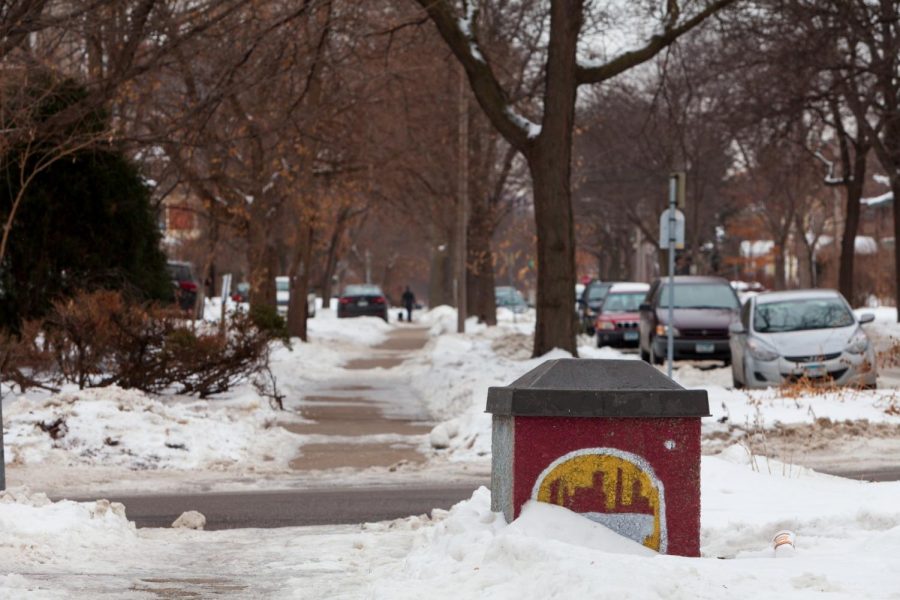The Minneapolis City Council had the eyes of the nation on their Wednesday night meeting when they voted to adopt the finalized 2021 city budget. While police reform was the hottest topic of the night, a variety of budget amendments will have a significant impact on University of Minnesota neighborhoods.
Mental health response teams and neighborhood funding were important items in the budget for the University area leading up to the contentious budget adoption. Council members representing University neighborhoods also spearheaded several significant amendments, including funding for renter’s associations and an opioid crisis clinic.
In an interview with the Minnesota Daily, Minneapolis Mayor Jacob Frey said that despite clashes with the city council over issues of police reform, he plans to sign off on the budget on Monday morning.
Mental Health Response Team
A proposal for a pilot program of a mental health response team was a keystone amendment brought forth to the city by several Council members, including Steve Fletcher of Ward 3, as part of the “Safety for All” budget plan.
Nearly $8 million was cut from the Minneapolis Police Department (MPD) budget to help fund the program’s pilot, on top of the $14 million in cuts to the MPD budget that Frey initially proposed.
Minneapolis will now join a growing list of cities opting for mental health professionals, instead of police officers, to respond to nonviolent mental health crisis calls.
“It’s really exciting because that feels like one of the things that we’re ready to implement this year that can actually produce a better and safer outcome for our residents,” Fletcher said.
Mohamed Ibrahim, deputy executive director of the Minnesota chapter of Council on American-Islamic Relations (CAIR), said this was one of the most important items to the communities CAIR serves.
“You’re creating capacity for police officers to do other things that they need to be doing,” Ibrahim said. “They have no business when it comes to responding to the health crisis calls. We need to create more accountability.”
Other amendments passed by Council members
Ward 6 Council member Jamal Osman pushed several amendments that passed in the 2021 budget, which include more funding for renter’s rights advocacy, homeownership training, opioid addiction crisis resources and employment opportunities for those in Ward 6 neighborhoods, including Cedar-Riverside.
“Our community needs a very different, specific strategy to make sure that programs work for the community,” Osman said. “There’s a lot of barriers for immigrant communities.”
Thanks to a budget amendment led by Osman, the Opioid Peer Recovery project, piloted by the city, will now operate out of Firehouse 7 on Franklin Avenue East in the Seward neighborhood to better serve the immigrant communities most affected by the opioid crisis in that area.
Another amendment allocated $50,000 for the Cedar-Riverside Opportunity Center to help with employment resources for those in the Cedar-Riverside community, plus $95,000 to support East African homeownership and education.
Weighing equity and cuts for neighborhoods
Neighborhood associations saw significant funding changes with the 2021 budget and the Neighborhoods 2020 initiative, and some neighborhood programs were cut out from the budget altogether.
Ward 2 Council member Cam Gordon helped push an amendment that increased the base funding for neighborhood organizations in 2021 to $25,000.
Alongside the base funding, equitable engagement funds will be awarded to organizations in an effort to support historically underrepresented communities.
The allocations are based on multiple factors within that neighborhood — including poverty levels and gentrification — based on an analysis by the University of Minnesota’s Center for Urban & Regional Affairs.
However, despite the base funding, neighborhood organizations anticipate significant change as a result of the cuts. Jessica Focht-Perlberg, executive director of Southeast Como Improvement Association, said it’s still unclear how the funds will be distributed or how they can be used.
“On one hand, there seems to be positive momentum forward in terms of people in the neighborhood understanding the critical importance of the equity work … and new folks involved in the conversation, and that’s great,” Focht-Perlberg said. “But then we also are just looking at the reality of [less] resources … ”
The fate of other programs throughout the city is also unclear, including Cedar Riverside’s Youth Program, a part of the city’s Youth Coordinating Board. The program in Cedar-Riverside aims to provide East African mentors for a mostly East African population to help combat things like youth crime, homelesnness and the opioid crisis by providing mentors that can relate to the youth of the community.
City funds will no longer keep the youth program running after July 2021, which leaves organizers like LaToya Balogun to find new ways to support it. This could come in the form of grants and donations, which Balogun said is typically thanks to community support.
“We’ve had the community speak up [for us,]” Balogun said. “Community has really been able to coalesce around the work of the outreach team and speak up and push on policies for our community.”



















